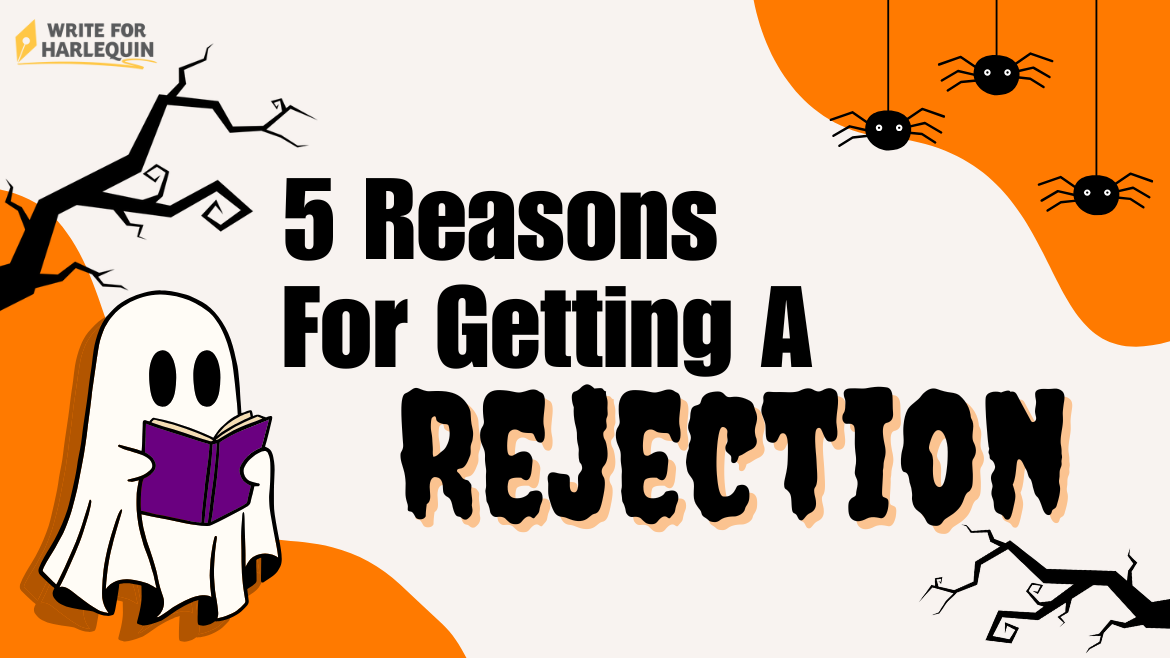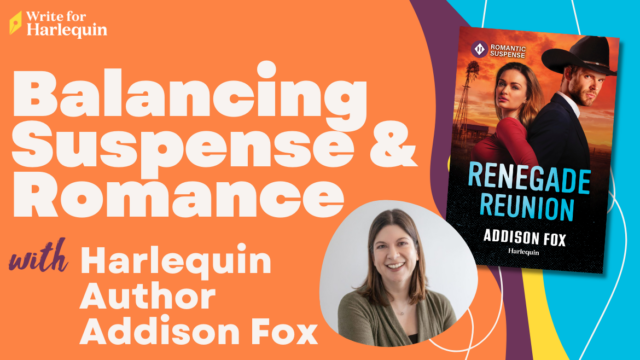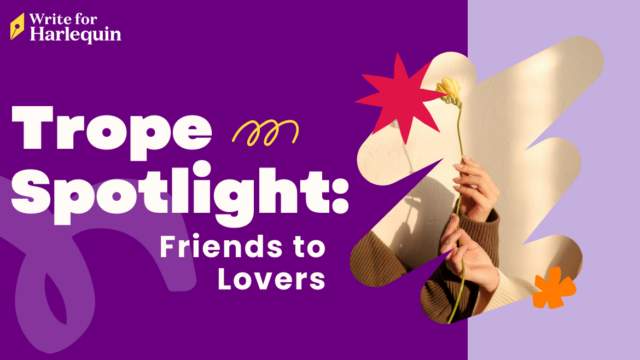
Are you afraid of the dark? Do visions of vampires haunt your dreams, or is it the zombie apocalypse that keeps you awake at night? If you’re an aspiring author, your biggest fear might be…dun dun duuuuun…the rejection letter.
Scarier than the dark stairway to the basement, more terrifying than the graveyard on a moonless night, you open your email inbox to see…a message from the publisher or agent you submitted to (cue horrified screams!).
We get it. Rejections may feel like a nightmare. But publishers and agents get hundreds of submissions a year and many won’t be accepted. So, let’s lay some fears to rest and talk about the top reasons submissions are rejected at Harlequin.
The submission doesn’t meet the series guidelines
If your book is the wrong genre, or is missing the key elements or word count required for the series, it will be rejected even if the writing is great. Each editorial team is dedicated to finding fabulous stories suitable for the line they work on. They can’t be experts in every line, and don’t have the resources to evaluate your submission’s suitability for another editor or series.
We also request the specific submission materials needed to judge the work fairly. If a 3-5-page synopsis is requested as part of the submission package, don’t assume a one-page pitch-style teaser will be enough.
The writing isn’t quite there yet
This can be a painful one to accept and a tough one to explain. “Good writing” can mean a lot of things, including language proficiency, storytelling, and voice.
It can be disappointing to receive a standard rejection when you’ve spent so long preparing your submission, and many authors hope to receive personalized feedback. But at the submission stage the editor’s job is to spot a compelling and marketable story that can be crafted into a finished book in collaboration with the author—after a contract is signed.
We offer lots of advice for new romance writers on this site. And reading widely, taking classes, or working with a writing group or editor can all help you hone your skills. But the main key is practice and the ability to read your own work critically—and kindly.
The romantic conflict isn’t strong enough
A romance story without a strong romantic conflict won’t be exciting and emotionally engaging. But the difference between a strong romantic conflict and a weak one can be subtle. Things to ask yourself:
- Is the conflict based in the present, affecting the characters’ actions in the story?
- Does each character have something important to lose by falling in love?
- Can the conflict be resolved too easily because it’s based on a misunderstanding?
- Are there both external forces and emotional barriers keeping the characters apart?
Answering these questions often comes down to understanding your characters and making sure they’re fully developed.
The story lacks a fresh angle
An appealing romance story is a mysterious blend of familiar tropes and unique hooks. The perfect submission stands out from the crowd by delivering exactly what the editor wants, but in a way they didn’t expect. It can be helpful to draft your “elevator pitch” or think about how you would catch a reader’s attention with the copy on the back cover. What is it about your story that’s fun, different, original and exciting?
It was simply the wrong time
Book publishing teams must evaluate submissions from agents, new authors and returning authors in the context of an entertainment marketplace that is more competitive than ever and evolves almost daily. Your manuscript might be too similar to something an editor has just acquired. Or maybe your story’s hook was on fire last year, but the market has cooled.
There are a lot of factors that aren’t in your control. It’s important to tune in to the trends but also to stay true to yourself and find publishers or agents whose vision is compatible with yours.
Hopefully, this has made rejection a little less hair-raising! Next time we’ll talk about breathing new life into your manuscript – yes, you can rise from the ashes of a rejection letter to write again. We’re here to help, with some tips on what to do (and not do) after rejection.




